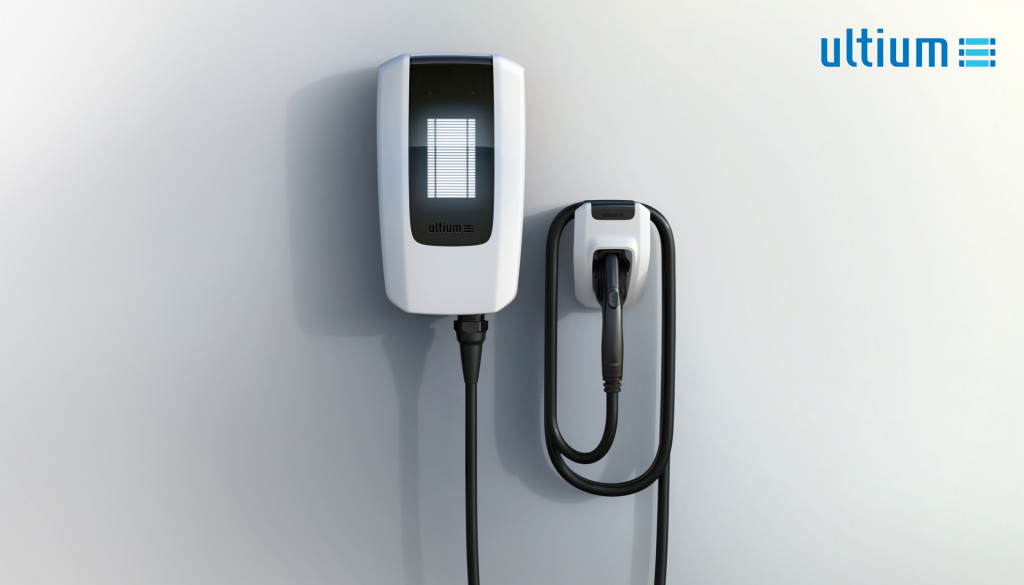Although high-power DC fast-chargers are important for widespread EV adoption, potential customers also need to know that they have the basics covered—with places to charge regularly, over a few hours, or overnight, not just when they go on a weekend road trip.
That’s why General Motors is looking to its network of franchised dealers for some direction on how to expand charging access to local communities—including urban, rural, and underserved areas.
Through what it’s calling the Dealer Community Charging Program, the company announced Tuesday that it aims to boost workplace and public charging, with locations at multi-unit dwellings, workplaces, and sports and entertainment venues—actual places in the dealership’s community that would help potential EV customers.

Electrify America Level 2 chargers with Chevrolet Bolt and Nissan Leaf
Hossein Hassani, GM’s director of EV ecosystem, wanted to make clear in a brief conversation with Green Car Reports prior to the announcement that this initiative doesn’t go toward installing chargers at dealerships—or at company facilities, as it did last year. It’s for the communities—and any places that dealerships might see as places with “high dwell time.”
“So we’re not creating a closed-off wall here,” said Hassani. “Our mission is to create more ubiquity and visibility in charging infrastructure so we can get more people thinking about EVs.”
Any vehicle that would be able to charge with the standard J1772 connector—either natively or with an adapter—could use these chargers, as that effectively includes all modern EVs in the U.S.
Through the program, GM hopes to see 40,000 Level 2 connectors installed. This is part of an investment in charging infrastructure of $750 million by 2025.
![Free Level 2 charging for Chevy Bolt EV at Lake Pointe Inn, McHenry, Maryland [image: Brian Ro] Free Level 2 charging for Chevy Bolt EV at Lake Pointe Inn, McHenry, Maryland [image: Brian Ro]](https://images.hgmsites.net/lrg/free-level-2-charging-for-chevy-bolt-ev-at-lake-pointe-inn-mchenry-maryland-image-brian-ro_100611274_l.jpg)
Free Level 2 charging for Chevy Bolt EV at Lake Pointe Inn, McHenry, Maryland [image: Brian Ro]
With it, GM will provide up to 10 Level 2 destination charging stations at various locations in communities, with help from GM in applying for incentives and expediting installation. The site hosts will pay for electricity or, perhaps, enter a sponsorship opportunity with the dealership.
The chargers will be branded Ultium Charge 360 and accessible through GM’s respective unified brand apps, but the company didn’t say which network these new destination chargers would be a part of. GM plans to become an aggregator of many different charging networks, with a unified experience to the end user. To that end, it’s made partnerships with Blink Charging, ChargePoint, EV Connect, EVgo, FLO, Greenlots, and SemaConnect, so they could feasibly be managed by any of those networks and because drivers would pay via their GMC, Cadillac, Chevrolet, or Buick app, they might not know the difference.
GM has about 4,500 dealerships in the U.S. and Canada, with the majority of those EV-certified dealerships. According to GM, nearly 90% of the U.S. population lives within 10 miles of a GM dealership.

2022 GM Ultium Charger lineup for home charging
GM also today gave a first look at its family of Level 2 Ultium Chargers for home use. They will include three units: an 11.5-kw/48-amp smart charger, a 11.5-kw/48-amp premium smart charger, and a 19.2/80-amp premium smart charger, with the latter useful with the Cadillac Lyriq and its 19.2-kw onboard charging option, allowing up to 51 miles of range per hour with home charging.
All three were developed with the company CTEK and are designed to work with those brand apps, allowing wi-fi and Bluetooth connectivity. They also have dynamic load balancing and allow over-the-air updates.
GM has used Qmerit for installation with its other home chargers, but it hasn’t yet confirmed a partner for this new-generation hardware.
The home chargers will ship early next year and will be eligible to wrap into new-vehicle financing. GM says the Dealer Community CHarging Program begins in 2022.













